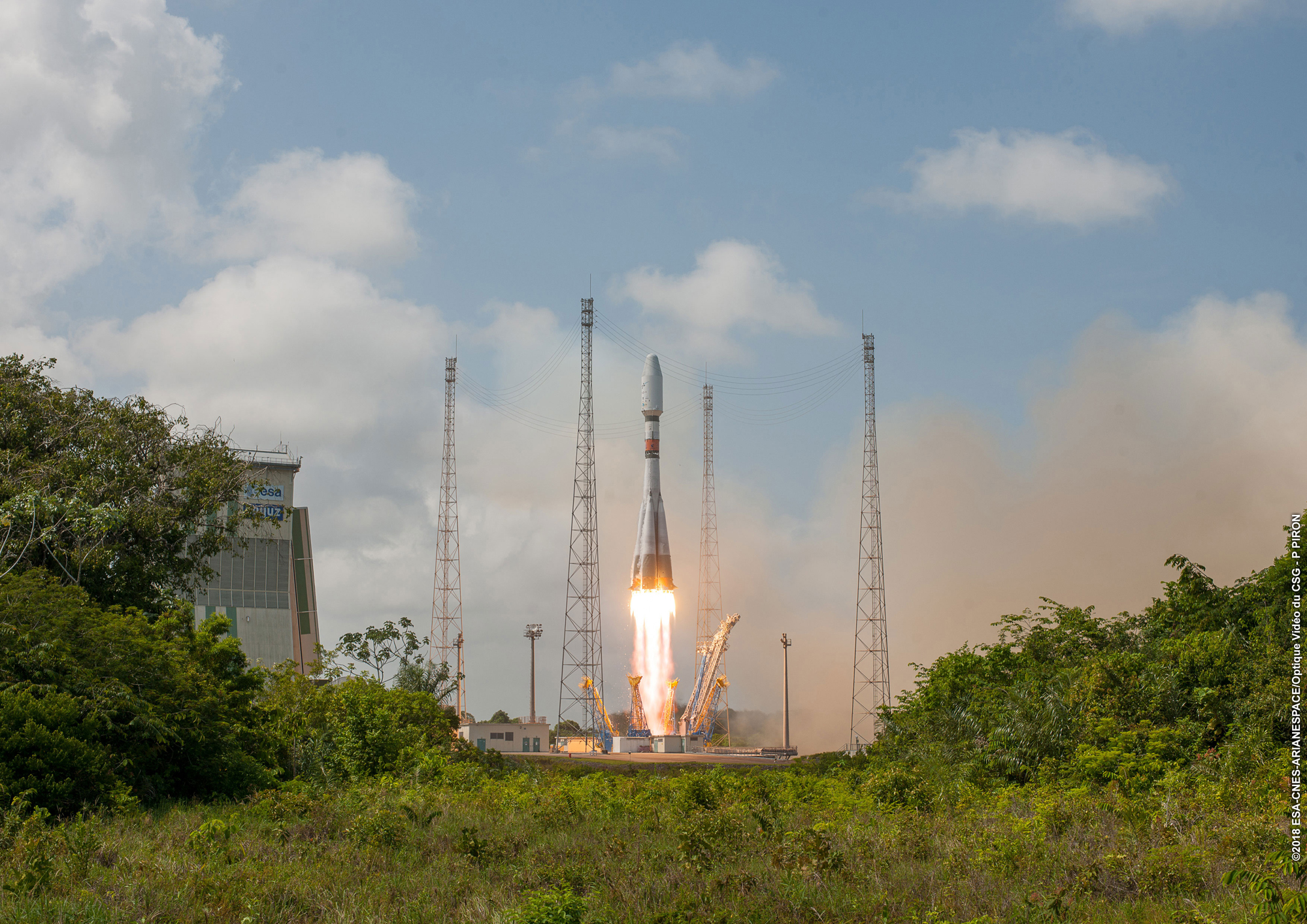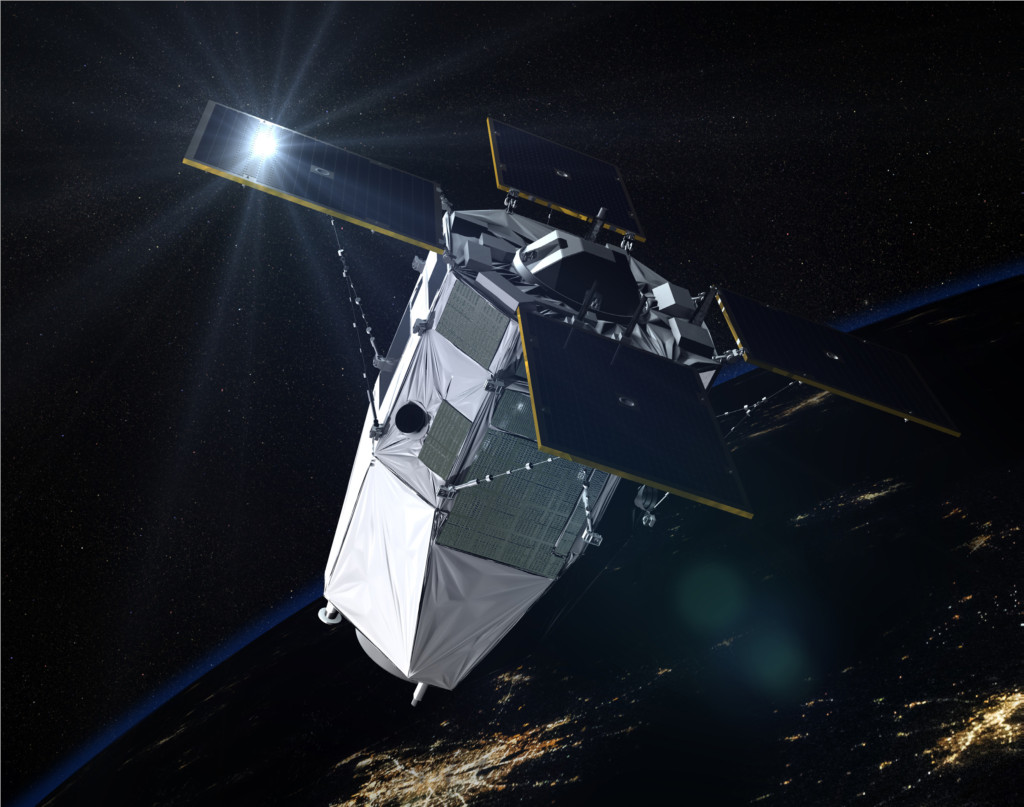Arianespace Launches Spy Satellite for France on Soyuz Rocket
An Arianespace Soyuz rocket successfully launched a new reconnaissance satellite into orbit for France Wednesday (Dec. 19), the first of a new constellation of spy satellites for the French military.
Arianespace launched the Russian-built Soyuz rocket from the South American spaceport of Guiana Space Centre to deliver the CSO-1 Earth-observation satellite into orbit for France's Ministry of Defense, the French space agency (CNES) and the country's defense procurement agency (DGA). Liftoff occurred at 11:37 a.m. EST (1637 GMT) after it was delayed by one day due to bad weather.
"The orbiting of CSO-1 shows once again how CNES is working effectively with the Ministry of Armed Forces to develop and operate its space systems," CNES President Jean-Yves Le Gall said in a statement. [Declassified US Spy Satellites in Photos]
The CSO-1 satellite (its name is short for Composante Spatiale Optique, French for "Optical Space Component") is the first of a three-spacecraft constellation of military observation satellites for France's ministry of defense. The satellite weighs 7,861 pounds (3,566 kilograms) and will be used for reconnaissance during its 10-year mission lifetime, according to an Arianespace description. Wednesday's Soyuz launch placed CSO-1 in an initial sun-synchronous orbit at an altitude of 497 miles (800 kilometers) above Earth.
"Once at its final orbital location, CSO-1 will be used to take 3D pictures and to acquire very-high-resolution images in the visible and infrared bandwidths, day or night and in fair weather, and using a variety of imaging modes to meet as many operational requirements as possible," Arianespace representatives said in a statement.
A second CSO satellite will also be used for reconnaissance, while the third will serve a target identification role, the European launch provider said. Airbus Defense and Space built the CSO-1 satellite for the French military.
Wednesday's launch marked the 11th mission of 2018 for Arianespace and its 20th Soyuz launch overall under an agreement with Russia's space agency Roscosmos. It was also the second space mission of the day, following the successful launch of the GSAT-7A communications satellite by the Indian Space Research Organisation.
Breaking space news, the latest updates on rocket launches, skywatching events and more!
A United Launch Alliance Delta IV Heavy rocket is also scheduled to launch Wednesday evening to deliver a U.S. spy satellite into orbit from California's Vandenberg Air Force Station. And top it all off, a Roscosmos Soyuz spacecraft is scheduled to return three crewmembers home from the International Space Station overnight.
Email Tariq Malik at tmalik@space.com or follow him @tariqjmalik. Follow us @Spacedotcom and Facebook. Originally published on Space.com.

Tariq is the award-winning Editor-in-Chief of Space.com and joined the team in 2001. He covers human spaceflight, as well as skywatching and entertainment. He became Space.com's Editor-in-Chief in 2019. Before joining Space.com, Tariq was a staff reporter for The Los Angeles Times covering education and city beats in La Habra, Fullerton and Huntington Beach. He's a recipient of the 2022 Harry Kolcum Award for excellence in space reporting and the 2025 Space Pioneer Award from the National Space Society. He is an Eagle Scout and Space Camp alum with journalism degrees from the USC and NYU. You can find Tariq at Space.com and as the co-host to the This Week In Space podcast on the TWiT network. To see his latest project, you can follow Tariq on Twitter @tariqjmalik.


